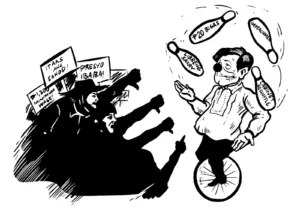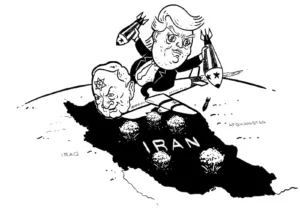By Pao-yu Ching
Professor Emeritus of Economics
Marygrove College Michigan
Download Dutch translation: CHINA: 30 jaar na de Hervorming
It has been over thirty years since Deng Xiao-ping began his capitalist Reform; here are some of the voices of the Chinese people.
Ordinary Chinese people ask: “What good is the health care reform? Now we can no longer afford to see the doctors.”
And: “What good is the education reform? Now we can no longer afford sending our children to school?”
Tens of millions of workers laid-off from former State enterprises say: “You took the factories we built with our blood and sweat and sold them to new capitalists, or foreigners; destroying buildings and machinery and then taking the land; you squandered away our country’s wealth and left us nothing to survive on.”
Peasants say, “We worked so hard for 30 years to build socialist agriculture and overnight we are back to pre-liberation days.”
Progressive intellectuals say, “The Reform has cloaked itself in socialist clothes but in fact it is capitalism of the worst kind – turning an independent socialist China into one that is increasingly polarized between the rich and the poor, and one that is dependent economically and politically on Western powers.”
With the exception of perhaps a very small minority, Chinese people agree that the current regime is corrupt to the core.
The Reform has cost human lives and caused human suffering, wasted China’s precious resources, devastated the environment, and turned China into a neo-colony of foreign powers. China has transformed from a socialist country, which supported oppressed people all over the world into one, which is allied with the oppressors in Asia, Latin America and Africa in order to acquire resources and expand its economic and political influence.
On the other hand, the Reform has taught Chinese people what capitalism really is all about. Thirty years after the capitalist Reform began the majority of workers and peasants have not only endured much suffering but also have realized that if the capitalist Reform continues, their sons, daughters and grandchildren will have no future. Progressive intellectuals have also realized that the future of China is indeed at stake. With this real life education Chinese people have finally understood the meaning of the two-line struggle and Mao’s warning of the return of the bourgeoisie.








